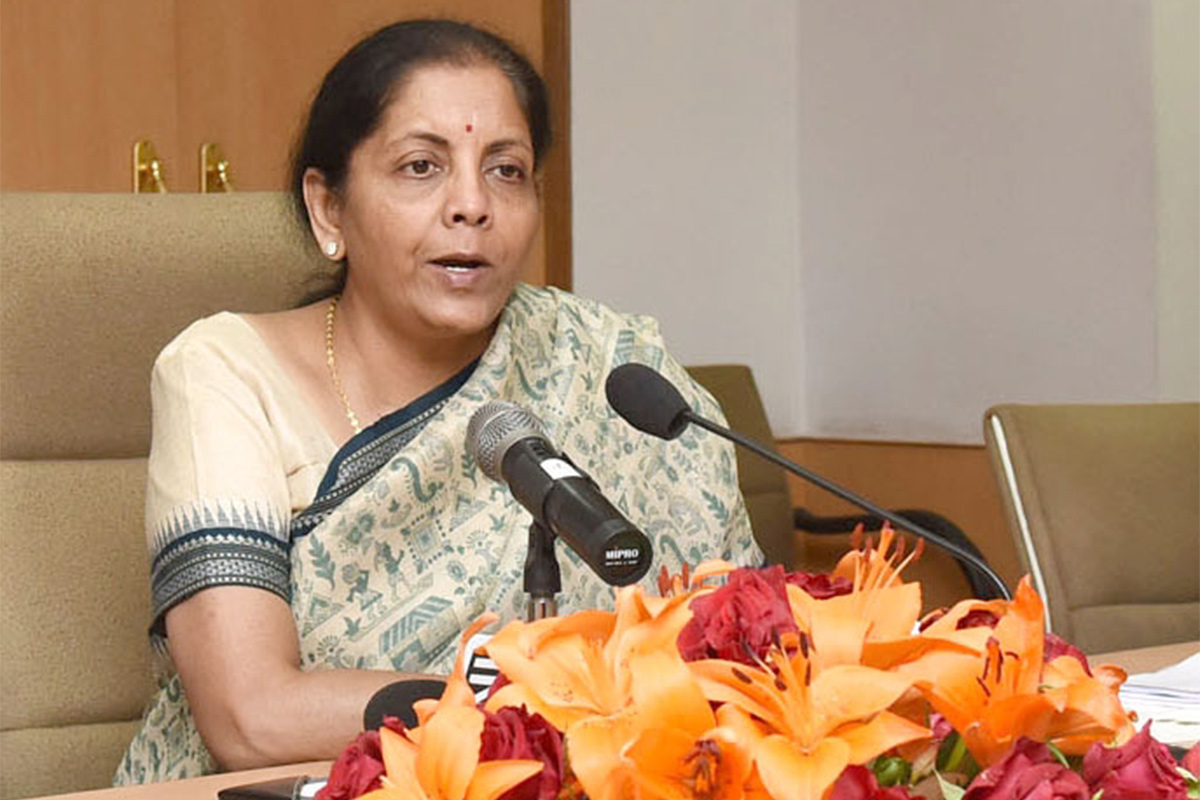Centre releases 15th Finance Commission grants for rural local bodies
The Union government has released Fifteenth Finance Commission (XV FC) Grants during financial year 2024–25 for rural local bodies in Punjab, Uttarakhand and Chhattisgarh.
The panel was also asked to examine whether a separate mechanism for funding of defence and internal security ought to be set up and, if so, how such a mechanism could be operationalised.

The report will be tabled in Parliament along with 'Explanatory Memorandum' by way of Action Taken Report as prescribed under the Constitution. (Photo: IANS)
The 15th Finance Commission on Tuesday submitted a copy of its report for 2021-22 to 2025-26 financial years to Union Finance Minister Nirmala Sitharaman.
The report, titled ‘Finance Commission in COVID Times’ was previously submitted to the President of India on November 4 and to the Prime Minister on November 16. The Commission is a constitutional body that gives suggestions on Centre-State financial relations.
Advertisement
“Chairman @NKSingh_MP and Members of the 15th Finance Commission presented a copy of the Commission’s report for 2021-22 to 2025-26 to Finance Minister @nsitharaman today,” the Ministry of Finance tweeted.
Advertisement
The report will be tabled in Parliament along with ‘Explanatory Memorandum’ by way of Action Taken Report as prescribed under the Constitution.
Last year, the Commission had submitted its report with recommendations for 2020-21 fiscal, which was accepted by the Union government and tabled in Parliament on January 30, 2020.
As per the terms of reference (ToR), the Commission was mandated to give its recommendations for the five-year period by October 30.
The Commission was asked to give its recommendations on many unique and wide-ranging issues. Apart from the vertical and horizontal tax devolution, local government grants, and disaster management grants, the Commission was also asked to examine and recommend performance incentives for states in many areas like power sector, adoption of DBT, and solid waste management etc.
The panel was also asked to examine whether a separate mechanism for funding of defence and internal security ought to be set up and, if so, how such a mechanism could be operationalised.
The Commission has sought to address all its ToRs in the latest report, organised in four volumes. Volume I and II, as in the past, contain the main report and the accompanying annexes. Volume III is devoted to the Union government and examines key departments in greater depth, with the medium-term challenges and the road map ahead. Volume IV is entirely devoted to the states.
The Commission analysed the finances of each state in great depth and came up with state-specific considerations to address the key challenges that individual states faced.
The report uses scales on its cover to indicate the balance between the states and the Union government.
Advertisement